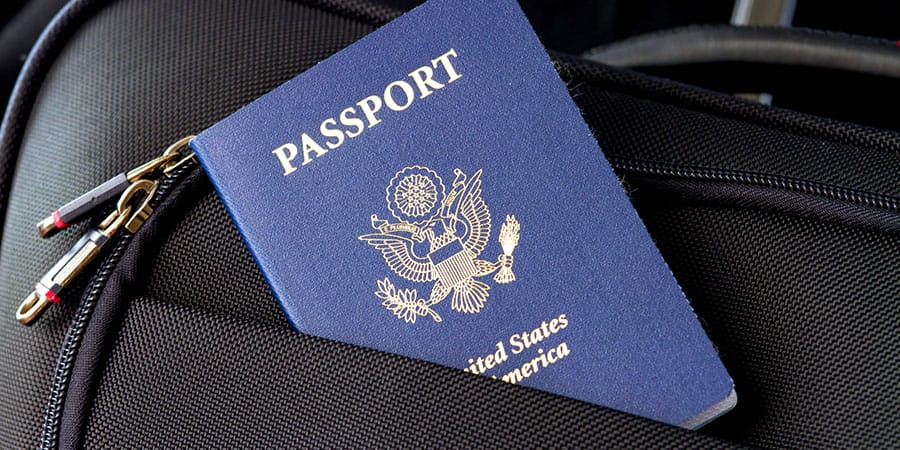If you’re an American living abroad, managing your investments can get tricky. I’ve worked with a lot of expats over the years, and the same issues come up again and again. U.S. tax laws, foreign regulations, and compliance rules can all limit what you can do with your money.
Here are the main restrictions I see expats facing and what you need to be aware of.
U.S. Tax Laws and FATCA
The Foreign Account Tax Compliance Act, or FATCA, changed the game for expats. It requires foreign banks to report information about American account holders to the IRS. Because of that, some banks overseas would rather not work with Americans at all. I’ve seen clients get turned away when trying to open investment accounts abroad simply because of the extra paperwork involved.
Even if you’re living in another country and paying taxes there, you still have to report everything to the IRS. That includes interest, dividends, capital gains, and pretty much any income from your foreign investments. And if your foreign assets go over a certain amount, you’ll also need to file Form 8938.
Complications?
How FATCA is enforced can vary depending on your host country. Some banks comply fully, others may ask you to close your accounts, and some may let you keep them open but limit investment services. Also, if you hold accounts under a foreign business or trust, FATCA adds even more layers of reporting that require careful handling.
Limited Access to Certain Investments
Many U.S. expats are surprised to find they can’t buy foreign mutual funds or ETFs. The IRS treats a lot of these as PFICs, or Passive Foreign Investment Companies, which come with harsh tax penalties and complicated reporting. Clients are generally steered away from them unless they’re fully prepared for the tax headache.
REITs are another area where it gets complicated. U.S.-based REITs are usually okay, but foreign ones often come with double taxation risks. Just because you live abroad doesn’t mean you can invest like a local without consequences.
Retirement Plans and Pensions
This is a big one. If you’re contributing to a U.S. retirement account like a 401(k) or an IRA while living abroad, the tax benefits might not carry over to your host country. You could end up paying taxes on those contributions locally, even if they’re tax-deferred in the U.S.
And it works the other way too. Some countries have great retirement savings options for their residents, but if you’re an American, those plans may not be recognised by the IRS. That can create a mess when it comes time to report or withdraw.
Where it could get complicated:
Not all foreign funds are PFICs, but most are. If you’re invested in a foreign pension that holds mutual funds, it might be treated as a PFIC wrapper too. PFIC rules are strict, and filing Form 8621 each year can be time-consuming and expensive.
In some countries, you might be required to invest in local pension funds as a resident or employee, which means you’re caught in the middle, mandated to contribute by the local government, but penalised by the IRS.
Capital Gains: You’re Still on the Hook
No matter where you live or where your investments are, if you sell at a profit, the IRS wants to know about it. Even if you’ve already paid capital gains tax in your host country, you still need to report it in the U.S. You might be able to offset it using the Foreign Tax Credit, but the rules are complicated.
Some countries tax capital gains differently or not at all. If you’re in a no-capital-gains-tax country like Singapore, you’ll still owe the IRS on any gains. The Foreign Tax Credit won’t help if no foreign tax was paid. In other cases, your host country might tax gains on a different timeline (realised vs. unrealised) or use different cost basis rules. These mismatches can create phantom gains or losses when converting back to dollars for U.S. tax reporting.
We would recommend working with a cross-border tax advisor to avoid surprises.
Currency Risk: The Hidden Factor
Living abroad means you might hold assets in other currencies. But when you convert those investments back to dollars, shifts in the exchange rate can work for or against you.
A stronger dollar can reduce the value of your foreign assets, while a weaker dollar can boost them. We talk about this a lot with clients investing in foreign stocks, bonds, or property.
The IRS views gains and losses from currency fluctuations as taxable events in certain situations. For example, if you sell a foreign investment or convert currency that’s appreciated, you may have to report the gain, even if the investment itself broke even. This is especially important if you’re moving large sums between countries or selling real estate.
Currency risk is real, and it’s easy to overlook.
You Need the Right Advice
Don’t try to figure all of this out on your own. The intersection of U.S. tax law and foreign regulations is messy. One mistake can be costly. Even experienced accountants sometimes miss cross-border tax rules, especially if they only focus on U.S. taxes or only local laws.
Look for someone with cross-border expertise who knows how to handle things like PFICs, treaty elections, dual-taxation planning, and FBAR/FATCA filings. The right advisor can help you avoid unnecessary penalties and take advantage of treaty benefits that others might overlook.
Final Thoughts
Yes, it’s more complicated for Americans investing while living overseas. But it’s not impossible. With careful planning, the right investment choices, and expert advice, you can still build and grow your wealth.




